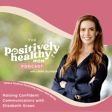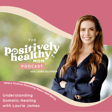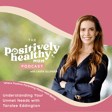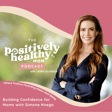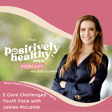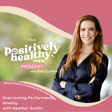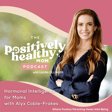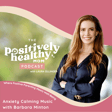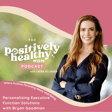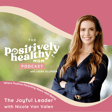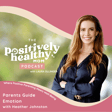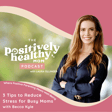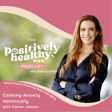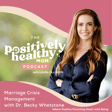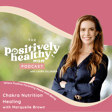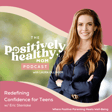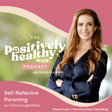
Stress Eating Explained
Welcome to The Positively Healthy Mom Podcast! I'm Laura Ollinger, and today, I’m excited to welcome Sherry Shaban, an Osteopath, Health and Life Coach with a wealth of experience in helping individuals heal their relationship with food and achieve a balanced lifestyle. Sherry is passionate about empowering people to listen to their bodies and develop healthy habits that serve them for life. Today, she’s here to talk about "Stress Eating Explained," a topic that resonates with so many moms and parents.
In this episode, Sherry dives deep into the emotional triggers behind stress eating, providing us with insights on how to foster a healthier relationship with food. Her own story of overcoming physical and emotional challenges shaped her holistic approach to health and nutrition, making her advice practical and relatable for those struggling with stress-related eating habits.
Sherry walks us through her personal journey of recovery from disordered eating, touching on her experiences as a former athlete, her battle with injury, and how she transformed her approach to food and fitness. She emphasizes that our relationship with food goes beyond just following a diet—it’s about recognizing and managing the emotions tied to our eating habits.
For parents, this conversation is especially valuable as Sherry shares strategies for modeling healthy relationships with food for our kids. She talks about how to help teens and younger children avoid common pitfalls like emotional eating, and how parents can guide their families toward mindful, intuitive eating practices.
Sherry also highlights the importance of understanding how food affects the body and how we often associate certain foods with guilt or reward. Her approach focuses on de-polarizing food and removing the "good vs. bad" mindset that many diets impose. This mindset shift allows us to release emotional attachments to food and prevent stress eating from becoming a coping mechanism.
A key theme of this episode is self-awareness. Sherry encourages listeners to tune into their body’s signals and to understand that there’s no one-size-fits-all approach to eating. She offers practical tips on how to incorporate this intuitive eating philosophy into everyday life, making it accessible for busy moms and families alike.
Key takeaways from this episode include:
- Understanding the link between stress and emotional eating and how it impacts overall health.
- How to develop a positive relationship with food that helps eliminate guilt and emotional attachments.
- Practical strategies for mindful eating that can help reduce stress eating habits.
- How to model healthy eating behaviors for teens and foster open discussions about food.
- Building routines around food that promote long-term wellness for both parents and children.
Join us for this enlightening conversation with Sherry Shaban as she breaks down the complexities of stress eating and shares empowering ways to transform your relationship with food. Her insights will inspire you to take control of your health and well-being, one mindful bite at a time.
Don’t forget to subscribe to our YouTube channel for expert advice on holistic health and wellness, stress management, parenting, and building healthy relationships for both moms and teens. Hit the notification bell to stay updated!
The Positively Healthy Mom FB Group
